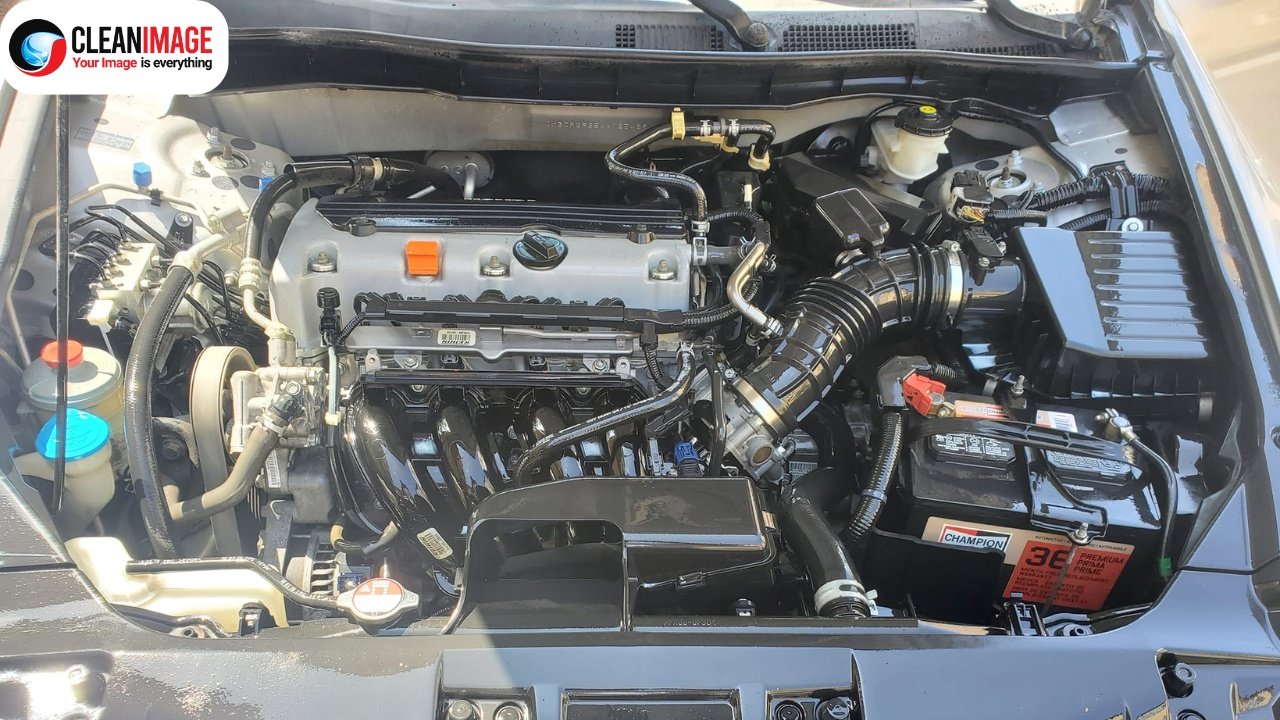
Is Detailing a Car Engine Good or Bad? Everything You Need to Know
When it comes to car detailing, many people focus on the interior and exterior of the vehicle, but what about the engine? You may have wondered, “Is detailing a car engine good or bad?” The answer isn’t always straightforward. While engine cleaning can provide numerous benefits, it must be done correctly to avoid any potential damage.
Why Should You Detail Your Car Engine?
1. Improved Aesthetic Appeal
Over time, your car’s engine can accumulate dirt, grease, and grime. Detailing your engine bay can restore its appearance, making it look cleaner and more polished. This is especially beneficial if you plan to sell or show your car, as a clean engine adds to the overall appeal of your vehicle.
2. Prevention of Corrosion
Dust and dirt trapped in the engine can cause rust and corrosion, especially if moisture is present. Regular cleaning can help reduce the buildup of harmful debris and prevent potential damage to engine components. A clean engine bay is also easier to inspect for any signs of leaks or wear and tear.
3. Easier Diagnosis of Problems
A clean engine makes it easier to spot potential issues. Whether it’s a small oil leak or a loose hose, a tidy engine compartment allows you to detect problems early before they become costly repairs. Additionally, mechanics can more easily work on your vehicle when the engine is free from debris.
4. Improved Engine Performance (Indirectly)
While engine detailing itself doesn’t directly affect engine performance, a clean engine helps maintain the health of critical parts. Removing accumulated dirt and grime from areas such as the air intake or cooling system can prevent blockages and ensure that components function efficiently.
Potential Risks of Detailing a Car Engine
1. Water Damage
Water and engine components do not mix well. While some areas of the engine bay are water-resistant, many parts—such as the electrical components, air filters, and sensors—can be damaged by water exposure. If not handled properly, water can cause short circuits or other electrical failures, leading to costly repairs.
How to Avoid This Risk:
-
Always cover sensitive components, including the battery, air intake, and distributor cap, before washing the engine.
-
Use a gentle spray to avoid forceful water pressure that could damage components.
-
Avoid using excess water around electrical connections.
2. Damage to Paint and Components
Overzealous cleaning, especially with harsh chemicals or abrasive brushes, can damage the paint in the engine bay or even harm the engine parts themselves. Certain cleaners may also corrode engine components or cause discoloration.
How to Avoid This Risk:
-
Use non-corrosive, engine-safe cleaning products.
-
Opt for a soft brush or microfiber cloth to gently scrub the engine bay.
-
Avoid using harsh chemicals that could damage engine parts or paint.
3. Messy Cleanup
Engine detailing can create a mess, especially if oil or grease is involved. Without proper preparation, you may find yourself dealing with greasy stains on your driveway or garage floor. Cleanup after engine detailing can be labor-intensive, particularly when dealing with sticky residues.
How to Avoid This Risk:
-
Lay down a protective cover or tarp beneath your car to catch any drips or spills.
-
Use degreasers and cleaners that break down grease effectively without leaving behind sticky residues.
Tips for Safely Detailing Your Car Engine
1. Preparation is Key
Before you begin detailing your engine, make sure the engine is cool. Cleaning a hot engine can cause the cleaner to evaporate too quickly, and it may also burn you. Allow the engine to cool down for at least 30 minutes before starting the process.
2. Cover Sensitive Areas
Cover electrical components such as the alternator, battery, and air intake to prevent water from reaching these areas. You can use plastic bags or plastic wraps to cover these parts securely.
3. Choose the Right Cleaner
Use a degreaser that is specifically designed for engine cleaning. Avoid household cleaners or harsh chemicals that could harm engine components. Additionally, use a cleaner that is safe for the environment, especially if you’re washing your car outside, as runoff could pollute the environment.
4. Use Low Pressure
When rinsing the engine, use low water pressure to avoid damaging delicate components. A light spray is all you need to remove dirt and grime from the engine bay.
5. Dry the Engine Thoroughly
After cleaning, it’s crucial to dry the engine thoroughly. Use a microfiber towel to wipe down any excess water, and allow the engine to air dry. This helps prevent moisture buildup that could lead to corrosion.
6. Regular Inspections
Once your engine is clean, inspect it regularly for signs of wear, leaks, or other issues. Detailing the engine gives you a clear view of components that may need attention, allowing you to catch issues early.
Summary: Is Detailing Your Car Engine Worth It?
Detailing your car engine can provide numerous benefits, such as improved aesthetics, corrosion prevention, and easier detection of issues. However, it’s essential to approach engine detailing carefully to avoid potential risks like water damage or harming sensitive components. By following the right techniques, using safe products, and taking proper precautions, engine detailing can be a worthwhile investment.
For those looking for professional, safe engine detailing, Clean Image Mobile offers expert car detailing services to ensure your engine is cleaned without the risks. We specialize in mobile detailing, bringing our top-quality services directly to your door. Trust Clean Image Mobile for all your car detailing needs and enjoy a pristine, well-maintained engine bay.
Leave a Reply
You must be logged in to post a comment.